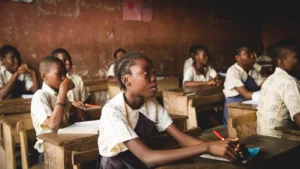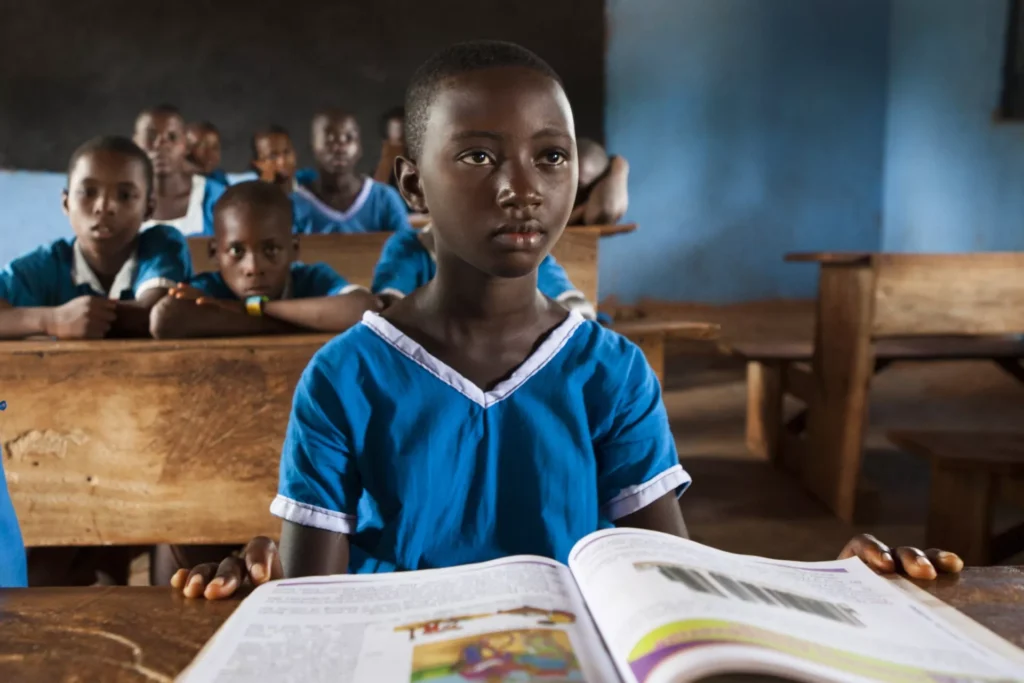Nigeria’s education sector continues to suffer from a wave of insecurity, particularly in the northern and central regions, where school kidnappings have become increasingly frequent. Armed groups, often referred to as bandits or insurgents, have targeted schools for mass abductions of students and staff, leading to widespread panic and forced school closures.
States such as Kaduna, Zamfara, Niger, Katsina, Sokoto, and Kebbi have recorded multiple incidents in recent years, with students—mostly girls—abducted in large numbers from boarding schools and government colleges. These violent acts have forced many communities to withdraw their children from school out of fear, deepening Nigeria’s education crisis and worsening the out-of-school children population, which already stands at an estimated 20 million.

Kidnappings Undermine Efforts to Boost Enrollment
These incidents have severely undermined both federal and state-level initiatives aimed at improving school enrollment, particularly for girls. Programs promoting universal basic education, gender parity in schools, and girl-child education have suffered major setbacks, especially in conflict-prone areas where parents now refuse to send their children to school.
In many rural communities, schools have either shut down entirely or are operating at drastically reduced capacity. Teachers, too, have fled from some locations due to fear for their lives, leaving already understaffed institutions unable to function. For instance, following mass abductions in Zamfara and Niger states, dozens of schools remained closed indefinitely, cutting off thousands of children from accessing basic education.
Psychological Trauma and Long-Term Damage
Beyond the immediate disruptions, the psychological impact of school kidnappings has been devastating. Survivors—many of whom are children—often return home traumatized, with little to no access to psychological support or counseling services. Some report sexual abuse and physical violence during captivity, experiences that scar them for life and deter them from returning to school.
The trauma also extends to parents and teachers, creating a climate of fear that hinders effective teaching and learning. Education officials in affected areas report declining school attendance, even in locations where there is no immediate threat, due to fear triggered by news of nearby attacks.
Federal and State Governments Under Pressure
The federal government has faced growing pressure to improve security around schools and implement proactive measures to safeguard students and staff. In response, some states have begun fencing school premises, deploying security personnel to high-risk areas, and introducing community policing initiatives. However, education and security experts say these efforts remain insufficient and inconsistent across regions.
The Safe Schools Initiative, originally launched in 2014 following the Chibok schoolgirl abduction, has struggled with implementation, funding gaps, and political will. While the federal government has renewed commitments to scale up the program, critics argue that tangible results remain limited on the ground.
Worsening Learning Poverty and Education Disparities
With continued insecurity, the learning gap between children in conflict-affected states and those in relatively safe urban areas is widening. Already, Nigeria faces a severe learning poverty crisis—with many children unable to read or perform basic numeracy tasks by age 10. School closures caused by kidnappings are worsening this issue, especially for girls who are more likely to be pulled out of school permanently after such events.
International organizations, including UNICEF and Save the Children, have raised concerns over Nigeria’s fragile education landscape, warning that failure to address school insecurity could roll back decades of progress in expanding access to education.
Urgent Need for Long-Term Security and Educational Reform
Experts recommend that improving physical infrastructure alone is not enough. They call for a comprehensive strategy that combines intelligence-led security efforts, investments in safe learning environments, trauma-informed educational support, and community engagement to rebuild trust in schools.
As the number of school kidnappings continues to rise, the future of millions of Nigerian children hangs in the balance. Unless bold, coordinated, and well-funded action is taken, insecurity will continue to rob young Nigerians of their right to education and their hope for a better future.







